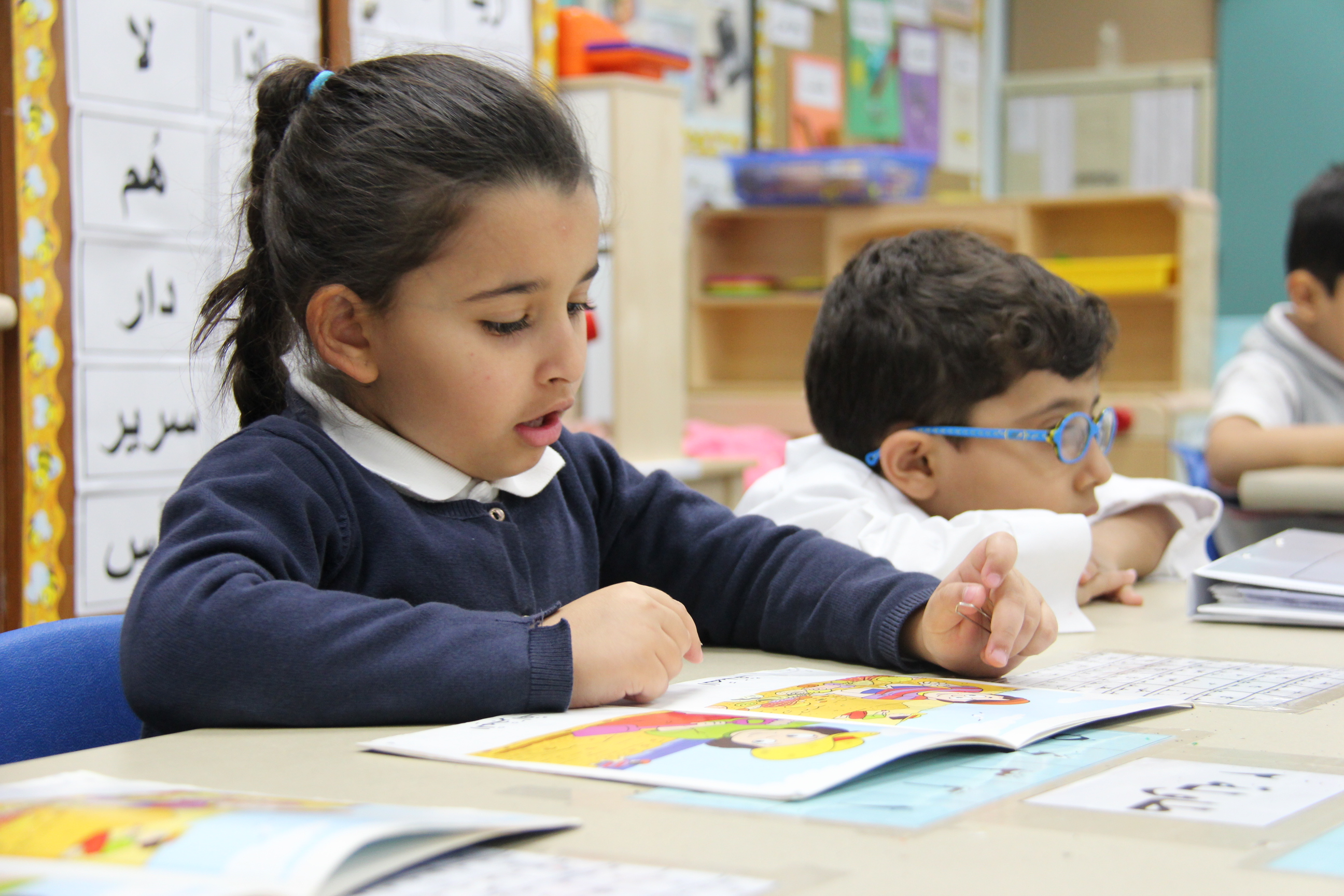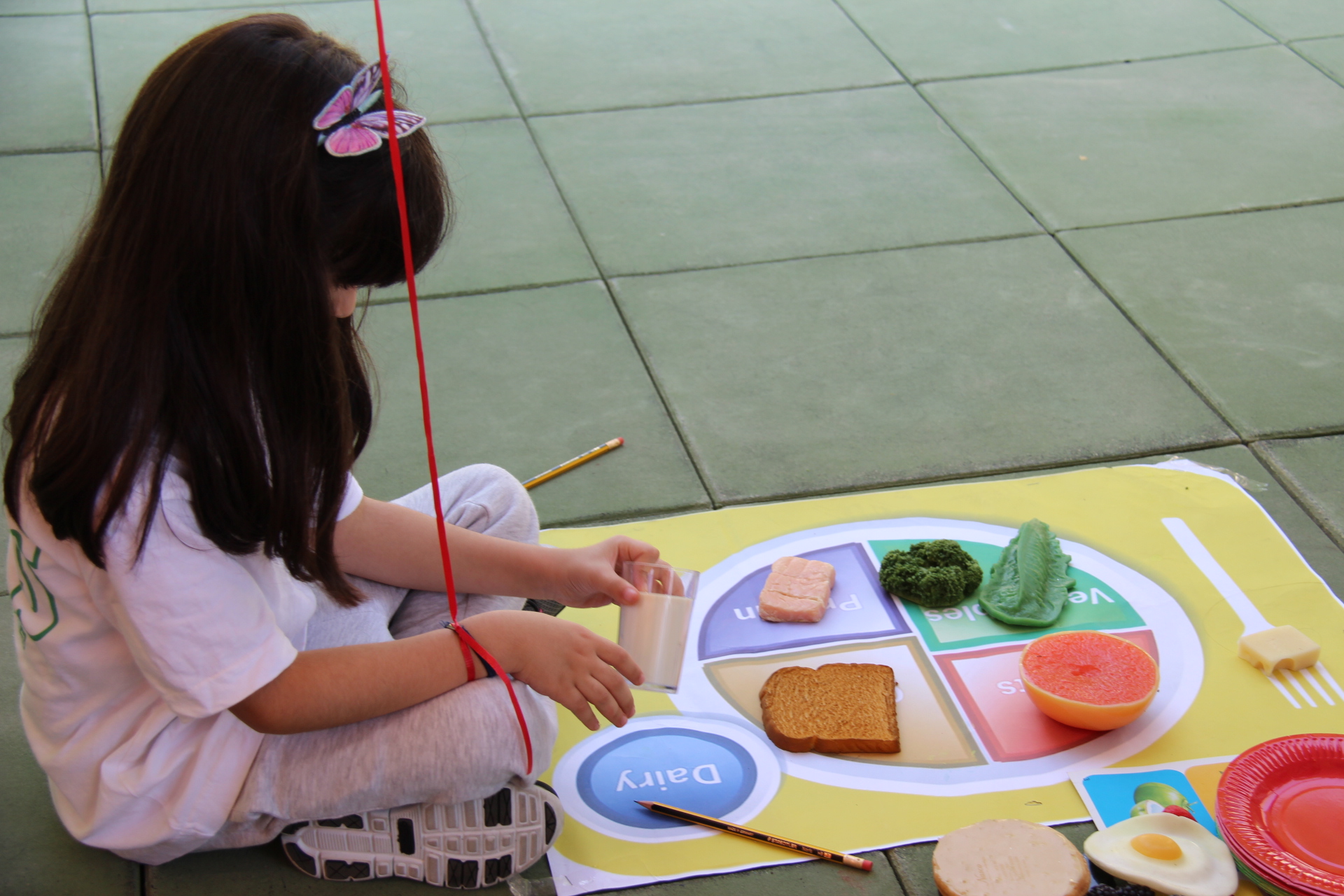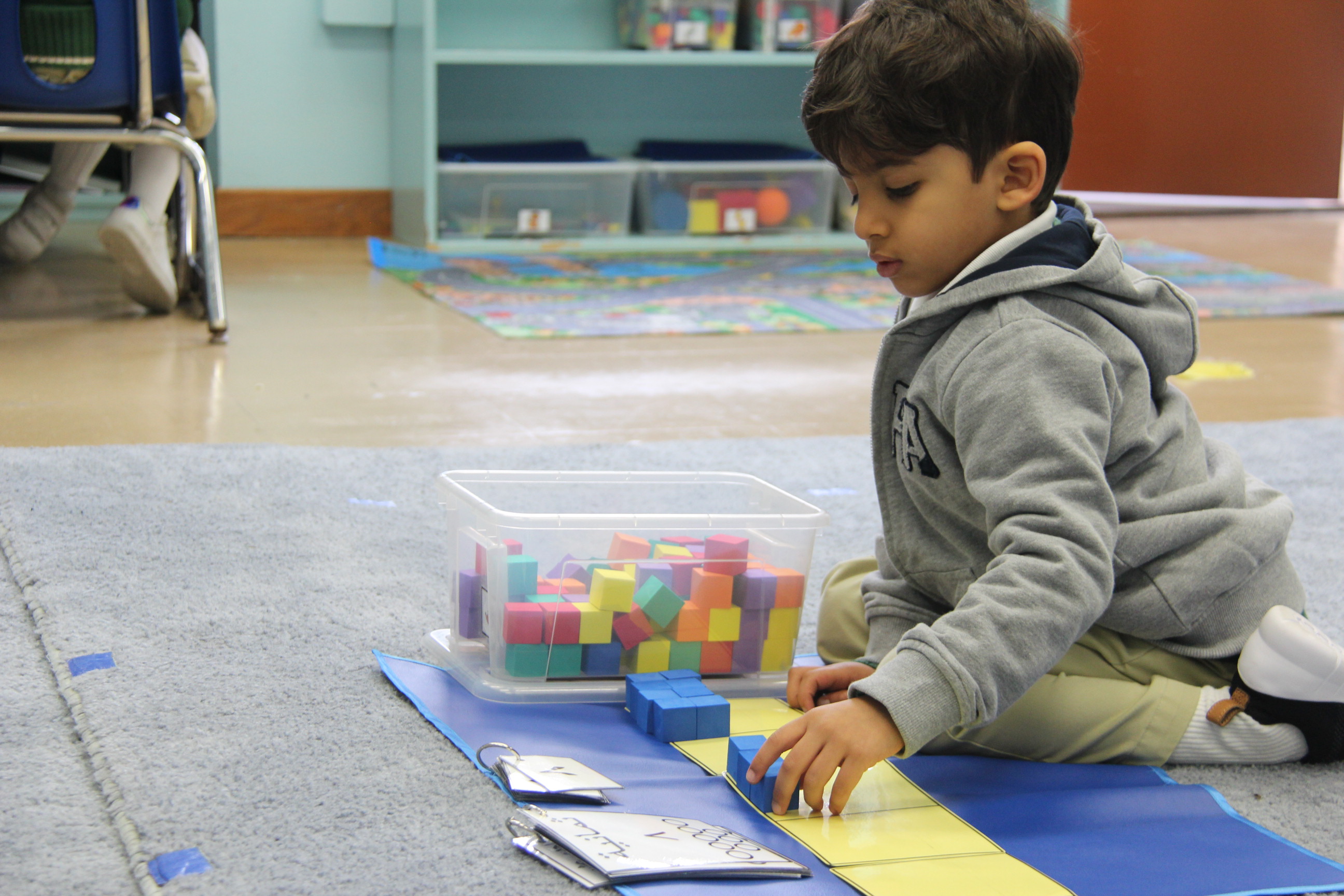KG1, KG2, and KG3 focus on four transdisciplinary themes which provide the framework for exploration of knowledge throughout the year. Teachers plan a wide variety of inquiry-based learning experiences and the children’s own questions are incorporated into the class program. We develop life-long learners by incorporating play-based learning, inquiry and student agency in our day-to-day lessons.
Language
Teachers provide opportunities for students to speak, listen, read, and write in a safe and stimulating environment to encourage risk-taking and learning. Our aim is to develop students’ ability to express themselves fluently, confidently, and accurately in oral, written, and visual communication systems.
Mathematics
We develop mathematical concepts by using inquiry in our math classes. A variety of opportunities are provided for the students to explore their surroundings. These experiences are the first steps of their discoveries to numbers and logics. Students are encouraged to think actively while answering questions, think about their thinking, and model their thinking in words, pictures or symbols.
Science
The main objective of science units is to cultivate curiosity, pique their interest about the world around them and build their knowledge and understanding. Therefore, we strive to provide them with maximum opportunities to interact with materials in their environment, enrich them with learning experiences and compare their findings of scientific experiments by using their five senses.
Religious Studies
The curriculum includes short Quranic surahs and prayers. We reinforce the curriculum by instilling Islamic values and practicing and relating those values to real life.
Social Studies
In kindergarten, the social studies curriculum focuses on developing the student’s personal identity and helping them recognize and understand society structures like family, school, community members and cultures. They begin to develop the concept of being a good citizen in the community, self-assessing needs and wants and beginning to understand the concept of geographic features.
Personal, Social, and Physical Education (PSPE):
Personal, Social, and Physical Education in the PYP is concerned with the aspects that concern the interest of the individual through the development of concepts, knowledge and skills that contribute to the utilising of this interest.
A student's interest is closely linked to all aspects of his/her experience in and outside of school, includes physical, emotional, cognitive, spiritual, and social development and health, and contributes to self-understanding and the development and maintenance of relationships with others, while participating in an active and healthy lifestyle.
Gross Motor Skills
We teach them how to control their muscles to be able to jump, run, and develop their ability to balance in order to help them learn how to coordinate movement of different parts of their bodies spontaneously without thinking.
Fine Motor Skills
From arts, math, and cooking to writing activities, we implement the use of different materials in order for children to learn how to move, control, and coordinate the movement between their eyes and their hands.



